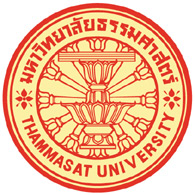On Saturday, July 6, around ten students met for the first time in the credit course “Voice of LGBT” in the graduate program in Women’s Studies at Thammasat University in Bangkok.

Thammasat has the oldest Women’s Studies program in Thailand. Perhaps there is only one other, at Chiang Mai University in the northern capital.
The revised Thammasat University course catalogue, published early this year, lists two new courses, “Voice of Transgender”, and “Introduction to Queer Theory”.
A new lecturer has been hired, Pogkrong Boon-Long, whose thesis was on gay saunas. He is the only male teaching in the Women’s Studies program. He changed the title of “Voice of Transgender” to “Voice of LGBT”. He is unwilling to teach “Introduction to Queer Theory”, personally critical for much of what passes as “Queer theory”.
The first class was on the background to LGBT activism, and brought in the present writer, Professor Douglas Sanders, to talk about the international history of LGBT resistance and activism. His presentation was translated into Thai. It ended with a ten minute exert from the video “The Time is Now” on LGBT activism in the context of UN human rights initiatives. The full video is available online:
The next series of speakers are Thai, including Tang, a founder of the lesbian organisation Anjaree and Note of the Thai Transgender Alliance. Other Thai activists will follow.
Is this the first credit course in ASEAN specifically on LGBT issues (as opposed to survey courses that may include a section on sex and gender diversity)? And is this not only the first, but unique in its focus on LGBT activism?
Doug Sanders is a retired Canadian law professor, living in Thailand since 2003. He can be contacted at sanders_gwb@yahoo.ca
